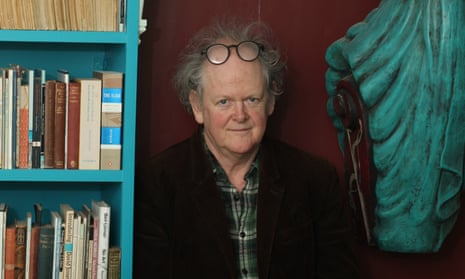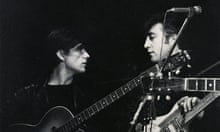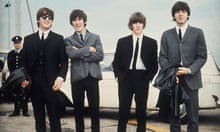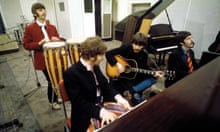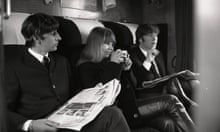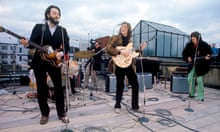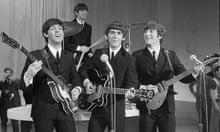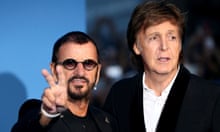Craig Brown has won the Baillie Gifford prize, the UK’s top award for nonfiction, for One Two Three Four: The Beatles in Time, a take on the band that judges said had “reinvented the art of biography”.
A mix of history, diaries, autobiography, fan letters, interviews, lists and charts, Brown’s book tells the story of the group and those within their orbit. Chair of judges Martha Kearney called it “a joyous, irreverent, insightful celebration of the Beatles, a highly original take on familiar territory”.
“It’s also a profound book about success and failure which won the unanimous support of our judges. Craig Brown has reinvented the art of biography,” said Kearney. “In the deep gloom of 2020, we have discovered a shaft of light.”
“The idea of there being a fresh book about the Beatles is quite hard to imagine as there is so much written about them – but it is such an original book” she added. “It is like a collage – he has picked so many fascinating details from so many sources and woven them together to give us new insights about the Beatles. It is such a funny book, but also very profound.”
Brown, an author, journalist and writer of Private Eye’s parodic diary column since 1989, wins £50,000. He beat titles including Kate Summerscale’s “true ghost story”, The Haunting of Alma Fielding; Sudhir Hazareesingh’s biography of Toussaint Louverture, Black Spartacus and Christina Lamb’s look at the impact of war on women, Our Bodies, Their Battlefield.
Brown has said that he was aiming, “to convey the fun and excitement of the Beatles’ era, and the speed at which the four of them changed, both for better and worse”.
“Even now, it strikes me as bizarre that they were all under the age of 30 when the Beatles came to an end, and that the gap between I Want to Hold Your Hand and Why Don’t We Do It in the Road? was just five years,” he said in an interview for the award. “I was also keen to show their effect on everyone from HM the Queen to Charles Manson. I felt that all this would be best conveyed in a multiplicity of short chapters juxtaposed like prisms, to form a kaleidoscope.”
The sheer “abundance of Beatles literature” meant Brown was “released from the burden of writing another big, fat chronological history”, and instead could follow his own “peculiar interests”. This included, he said, “tracking down the stories of odd-bods like The Singing Nun or leafing through old copies of the Listener magazine to find out why Anthony Burgess loathed their music with such a passion”.
Kearney was joined on the judging panel by her fellow BBC presenter Shahidha Bari, novelist Simon Ings, New Statesman writer Leo Robson, New York Times opinion editor Max Strasser and journalist and author Bee Wilson.
